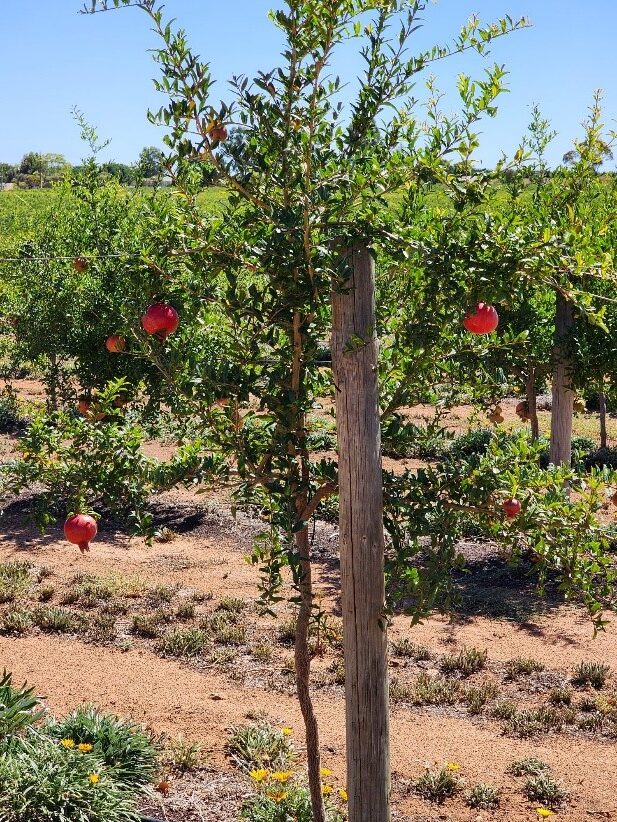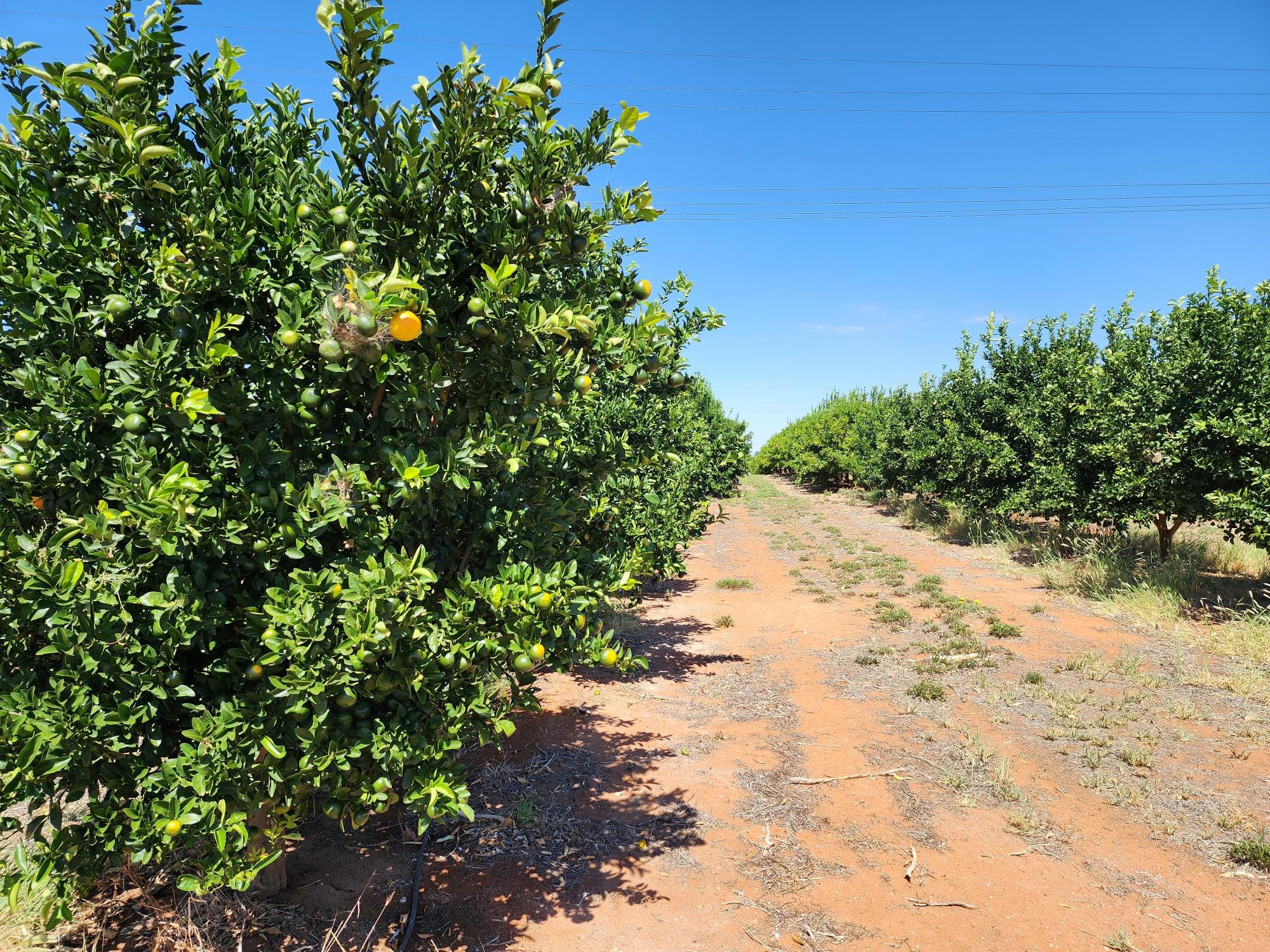The Riverland region of South Australia, known for its fertile soil and sunny climate, offers excellent production horticulture courses near the Murray River, which provides easy access to irrigation water. These factors make it an ideal location for various types of production horticulture, and a great place for ARO College to deliver our AHC30620 Certificate III in Production Horticulture qualification.
Some of the main types of production horticulture found in the Riverland region include:
- Citrus Production: The Riverland is one of Australia’s largest citrus-growing regions, known particularly for oranges, lemons, mandarins, and grapefruits. Citrus orchards in the area benefit from the warm climate and access to irrigation water, producing high-quality fruit for both domestic and export markets.
- Wine Grapes: The Riverland is a significant grape-growing region. The region’s warm days, cool nights, and irrigation infrastructure support the cultivation of grapes for wine, table grapes, and dried fruit.
- Almond Production: Almonds thrive in the area’s climate and soil conditions, with many orchards benefiting from modern irrigation techniques. ARO College has incorporated two elective units relating to Irrigation into our AHC30620 Production Horticulture course delivery.
- Stone Fruit Production: The Riverland produces a variety of delicious stone fruits such as peaches, nectarines, apricots, and plums. These fruits are well-suited to the region’s climate and are cultivated in multiple orchards.
- Vegetable Production: While not as predominant as fruit production, vegetable cultivation also occurs in the Riverland region. Farmers grow various vegetables, including tomatoes, pumpkins, capsicums, and zucchinis. Irrigation plays a crucial role in supporting vegetable production, allowing for consistent yields throughout the year.

South Australia has strict biosecurity laws, overseen by the Department of Primary Industries and Regions (PIRSA) To protect fruit and vegetables while they grow and ripen, farmers need to ensure biosecurity measures are maintained. ARO College trains students in many aspects of this care, including AHCBIO303
Apply biosecurity measures and AHCWRK306 Comply with industry quality assurance requirements. These 2 subjects are core units required for the AHC30620 Certificate III in Production Horticulture qualification.
Despite the growing popularity of organic produce, it remains common practice to apply chemicals to protect it from disease and/or insects. ARO College includes 3 units to assist students in learning how to correctly transport and store chemicals (AHCCHM304) and prepare and apply them (AHCCHM307). Additionally, we teach students in all our Certificate III Horticulture (AHC30722) and Production Horticulture (AHC30620) courses, and how to control weeds (AHCPMG301).
If you haven’t visited, the Riverland region of South Australia offers a diverse range of production horticulture enterprises, and for tourists, there are delicious restaurants, historic hotels, wineries, and distilleries well worth a visit. But most of all, the mighty Murray River provides the essential water needed by Riverland horticulturalists, essential to the superb citrus, grapes, almonds, stone fruits, and vegetable crops the region is famous for.

